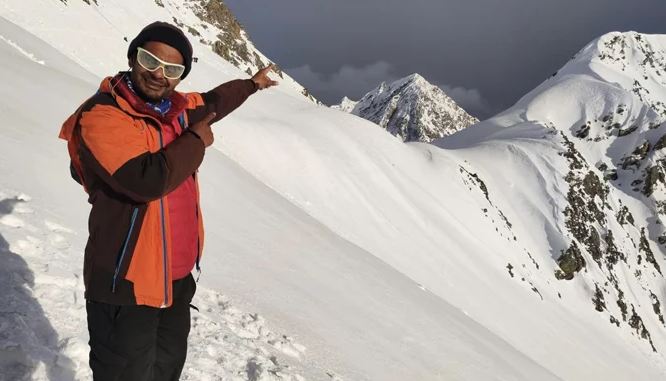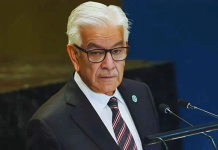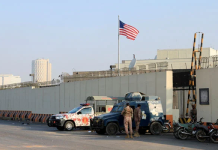A rockfall at Nanga Parbat on Wednesday halted the rescue operation to bring back the Pakistani mountaineer Asif Bhatti who became stranded on the rock due to snow blindness.
Bhatti, who is also a university professor, had managed to descend to camp three on Tuesday after getting stuck at camp four on Monday.
The mountaineer is accompanied by Israfyl, a climber from Azerbaijan, on their descent from the mountain.
Climbers Shah Daulat and Mohammad Yonus are the volunteers who are part of the rescue team looking to bring Bhatti to safety.
“The two volunteer climbers who went for upper slopes of NP [Nanga Parbat] last night couldn’t go any further from C1 due to rockfall which started on the mountain last night,” the Karakoram Club tweeted from their official account on Wednesday.
“The weather seems to be getting worse and Heli [helicopter] rescue is the only hope unless a miracle happens and climbers are able to come down on their own. Prayers for everyone on the mountain and the basecamp,” it added.
Meanwhile, Asif Khoja, Social Media Incharge and point of contact for Bhatti, has stated that “Dr bhatti’s health is deteriorating and helicopter sling operation seems the only solution”.
“Immediate actions and decisions are required to save the life of Professor Bhatti,” he added.
The 8,126-metre Nanga Parbat, the ninth-highest mountain in the world, is considered dangerous due to its high fatality rate. The mountain has a daunting ascent along with the risk of unstable glaciers, avalanches and storms.
Before its first ascent in 1953, 31 people died attempting to climb the peak, which is why it was nicknamed “the Killer Mountain.”
The mountain is also called “the western anchor of the Himalayas.” It has a 22.3% death ratio, making it the third most dangerous mountain peak in the world.

















